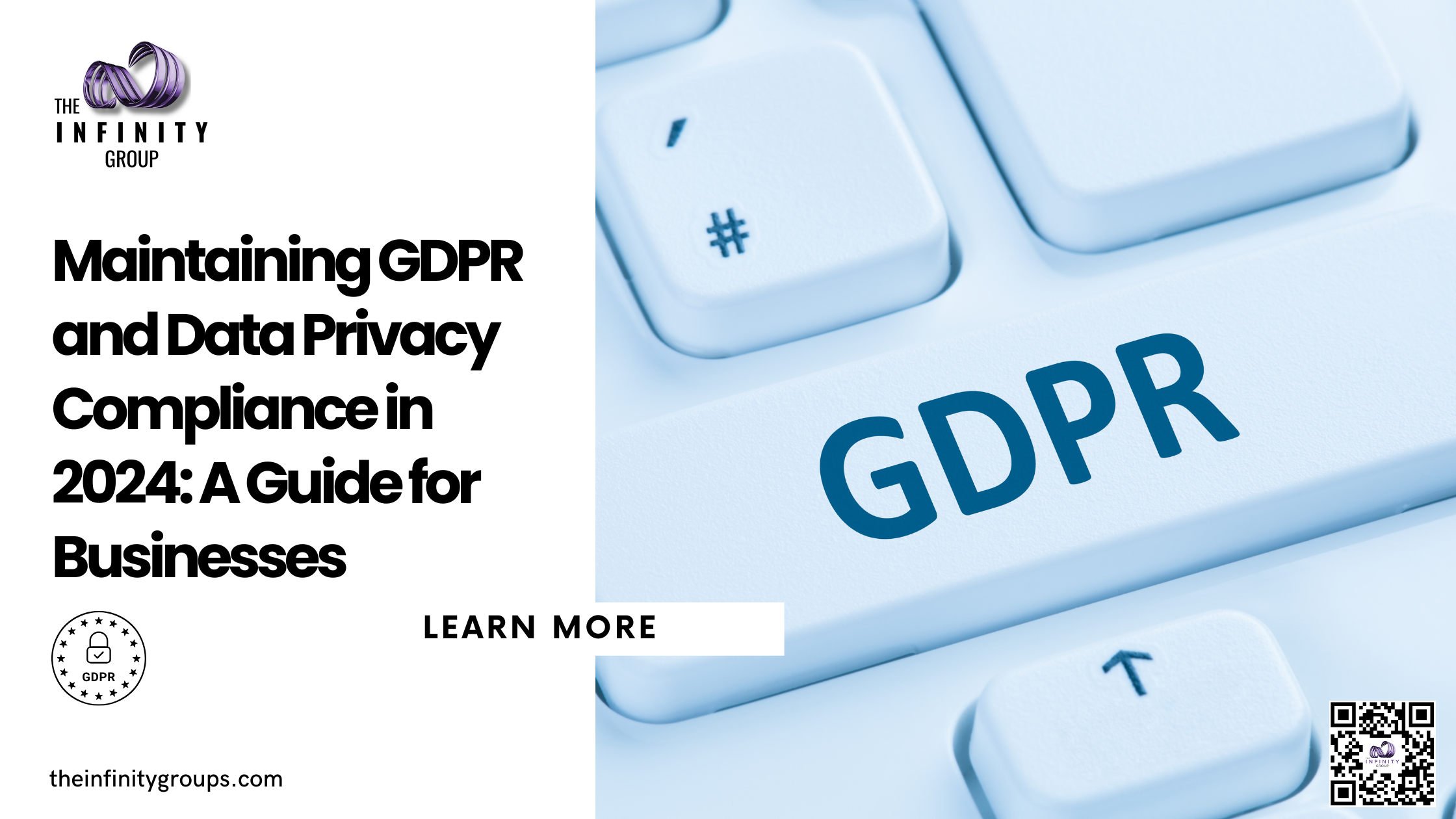In today’s data-driven world, protecting personal information is not just a legal requirement but also a crucial aspect of maintaining trust with clients and stakeholders. The Data Protection Act 2018, which incorporates the UK’s implementation of the General Data Protection Regulation (GDPR), governs how organisations, businesses, and government entities use personal data in the UK. As we move into 2024, understanding and complying with these regulations is more important than ever.
Understanding GDPR and the Data Protection Act 2018
The Data Protection Act 2018 and the UK GDPR set out strict rules, known as data protection principles, which dictate how personal information must be handled. These principles ensure that data is:
- Used fairly, lawfully, and transparently.
- Collected for specific, explicit purposes.
- Relevant and limited to what is necessary.
- Accurate and kept up to date where necessary.
- Retained only for as long as necessary.
- Processed securely to prevent unauthorised access, loss, or damage.
Sensitive personal information, such as racial or ethnic origin, political opinions, religious beliefs, trade union membership, genetics, biometrics, health, and sexual orientation, is subject to even stronger legal protections. Additionally, there are specific safeguards for data related to criminal convictions and offences.
Your Rights Under the Data Protection Act 2018
Individuals have several rights under the Data Protection Act 2018, including:
- Right to be informed: Know how your data is being used.
- Right of access: View the personal data held about you.
- Right to rectification: Correct inaccurate or incomplete data.
- Right to erasure: Request deletion of your data.
- Right to restrict processing: Limit how your data is used.
- Right to data portability: Obtain and reuse your data across different services.
- Right to object: Challenge certain types of data processing, including direct marketing.
These rights also extend to data used in automated decision-making and profiling processes, ensuring that individuals have control over how their data is handled.
Does GDPR Still Apply in the UK?
Yes, the GDPR has been retained in UK law as the UK GDPR, alongside an amended version of the Data Protection Act 2018. The key principles, rights, and obligations remain largely the same, but there are specific considerations for international data transfers between the UK and the European Economic Area (EEA).
The UK GDPR also applies to businesses outside the UK if they offer goods or services to individuals in the UK or monitor the behavior of individuals in the UK. Similarly, UK businesses with operations or customers in the EEA must continue to comply with the EU GDPR, particularly in how they interact with European data protection authorities.
Top Tips for Ensuring GDPR and Data Privacy Compliance in 2024
To navigate the complexities of GDPR and data privacy laws, here are five essential tips for your business:
- Review Your Privacy Notice: Ensure that your privacy notice is up to date and reflects the jurisdictions where you process personal data. Transparency about your data practices reduces the risk of compliance challenges.
- Check Marketing Opt-Out Mechanisms: Regularly verify that you opt-out mechanisms work correctly and that your marketing activities comply with legal grounds. Ensuring compliance with your marketing efforts can help prevent complaints and potential investigations.
- Map Your Data Flows: Understand where your data is going, who has access, and how it’s protected. This includes data handled by subcontractors, service providers, and supporting software systems. Mapping your data flows helps identify legal obligations and enhance data security measures.
- Review Your Data Protection Measures: Evaluate whether your data protection strategies are effective. Implementing measures like Cyber Essentials and anti-phishing training can significantly reduce security risks. Consider investing in penetration testing to identify and address vulnerabilities.
- Use a Compliance Platform: Consider using a compliance platform to efficiently manage regulatory requirements, identify necessary controls, and generate policies, procedures, and documentation needed for compliance.
Stay Updated with The Infinity Group
Staying compliant with data protection regulations is an ongoing process, especially as laws and guidelines evolve. At The Infinity Group, we are committed to keeping our clients informed about the latest changes in legislation and offering expert guidance to help businesses maintain compliance.

